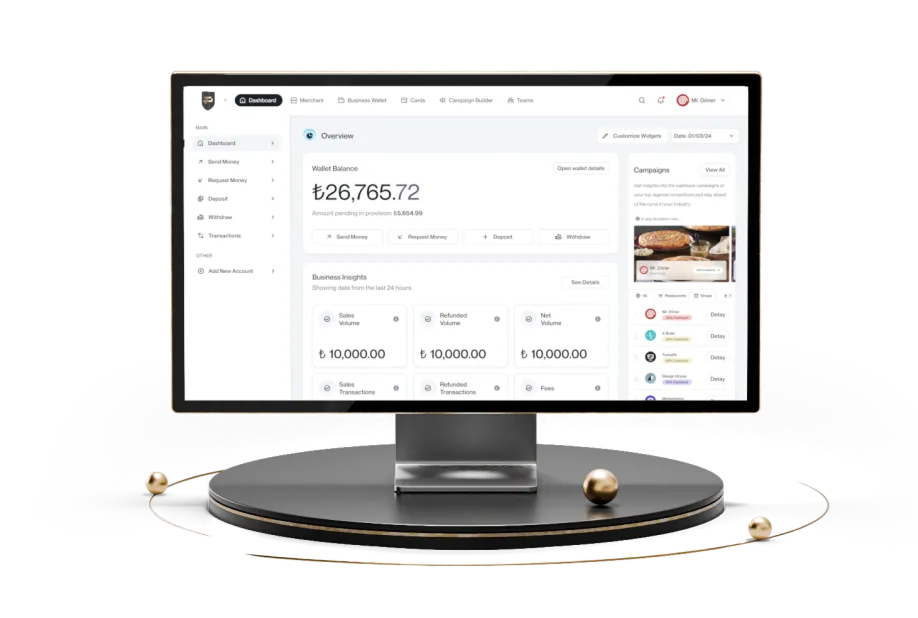What Is Interest? Types, Effects of Interest Rates, and Their Outcomes
Interest is one of the fundamental pillars of economies and lies at the heart of financial decisions for both individuals and institutions. Today, interest plays a key role in loans, savings, investments, and borrowing. However, the concept of interest—what it is, how it works, and how it impacts the economy—can often seem complex. In this blog, Papel provides a comprehensive perspective on interest, from its definition and types to the factors influencing interest rates and their economic consequences.
What Is Interest?
In its simplest definition, interest is the cost paid for using borrowed money or capital. Typically expressed as a percentage, interest is added to the principal after a certain period. For instance, if you take out a loan from a bank, the total amount you owe includes the original loan plus the interest charged on it. Central banks or other financial institutions set interest rates to maintain economic stability and promote financial growth, considering factors like inflation, market conditions, and monetary policies.
What Are the Types of Interest?
Interest is the cost paid for borrowing or lending money and is categorized based on the nature and terms of financial transactions. The main types of interest are:
Principal (Capital) Interest
This is the interest applied to the amount of money lent until maturity.
Default (Late Payment) Interest
The interest paid by borrowers for overdue payments.
Legal Interest
This refers to the interest rate determined by law when no agreement has been made between the parties.
Contractual Interest
The interest rate agreed upon by the parties in a contract can be either principal interest or default interest.
Simple Interest
Simple interest is calculated only on the principal amount and does not compound. For example, with a principal of 10,000 TRY and an annual interest rate of 10%, the total interest after 2 years would be calculated as:
10,000 TRY × 0.10 × 2 = 2,000 TRY
Compound Interest
Compound interest involves adding the earned interest to the principal, allowing interest to accumulate on the new total in subsequent periods. This means that interest earns interest. While compound interest is generally prohibited under Turkish law, exceptions are specified in the Turkish Commercial Code. The formula for calculating compound interest is:
A = P × (1 + r/n)^(n×t)
Where:
A = Total amount (principal + interest) at maturity
P = Initial principal
r = Annual interest rate (in decimal form)
n = Number of compounding periods per year
t = Total time in years
Fixed Interest
In fixed interest, the rate remains unchanged for the duration of the loan or investment, making financial planning easier.
Variable Interest
Variable interest rates are periodically updated based on market conditions, often tied to a benchmark or index.

Nominal Interest
Nominal interest is the stated rate without accounting for inflation. For example, if a bank offers a 20% interest rate on deposits, this is the nominal rate.
Real Interest
Real interest adjusts the nominal rate for inflation, reflecting the actual change in purchasing power. It is calculated as:
Real Interest = [(1 + Nominal Interest) / (1 + Inflation Rate)] - 1
Deposit Interest
This is the interest applied to term deposit accounts at banks.
Loan Interest
The interest rates applied by banks to loans granted to individuals or businesses.
What Factors Influence Interest Rates?
Interest rates are shaped by various economic dynamics, with inflation being one of the most significant determinants. High inflation reduces the purchasing power of money, leading investors to demand higher returns, which raises interest rates. Other critical factors include:
Monetary Policies: Central banks adjust interest rates to control inflation or stimulate economic growth by regulating the money supply.
Supply and Demand: The availability and demand for loanable funds influence interest rates, driven by saving and investment trends.
Foreign Exchange Rates, Public Debt, and Global Development: These factors also play key roles in determining interest rates.
What Is an Interest Rate Hike?
An interest rate hike is a monetary policy tool central banks use to achieve economic objectives, such as controlling inflation, stabilizing the currency, and maintaining economic stability. When central banks increase the benchmark interest rate, it leads to higher borrowing costs for banks, which then pass on the increase to their customers through higher loan rates.
However, raising interest rates can have varying effects depending on the economy. For example, while it helps curb inflation, it can increase borrowing costs, reduce consumer spending, and slow economic growth.

What Happens When Interest Rates Drop?
Lowering interest rates can have positive and negative effects, depending on economic conditions, inflation levels, and market indicators. The potential outcomes include:
Lower Loan and Deposit Interest Rates
When central banks reduce policy rates, borrowing costs for banks decrease, leading to lower loan interest rates for consumers. At the same time, deposit interest rates may also fall, reducing returns for savers.
Increased Consumption and Investments
Lower interest rates make borrowing cheaper, encouraging consumers and businesses to spend more, thereby boosting economic growth. However, in periods of high inflation, rate cuts can exacerbate inflationary pressures and destabilize the economy.
Rising Foreign Exchange Rates
A decrease in interest rates reduces the appeal of the local currency, increasing demand for foreign currencies and potentially leading to currency depreciation.
Higher Inflation Risk
Rate cuts can increase overall demand, potentially triggering inflation. In economies already facing high inflation, this could worsen the situation.
What Is Interest Accrual?
Interest accrual is the accounting process of recording earned or payable interest for a specific period, even if the payment or receipt has not yet occurred. This method ensures that financial records accurately reflect income and expenses in the period they occur. For instance, businesses calculate and record interest expenses on loans at the end of each accounting period, regardless of whether they have been paid. Similarly, interest income from investments is recorded based on the accrual method.
Accrual accounting enhances the accuracy of financial statements, enabling businesses to track their financial health and make informed decisions.
Frequently Asked Questions
What is a deposit account?
A deposit account is a type of bank account where funds are deposited, and the balance or a portion of it can be withdrawn within a specified or agreed-upon term.
What is a capital increase?
Capital increase refers to a company raising its existing capital by issuing new shares or utilizing other financing methods.
What is the benchmark interest rate?
The benchmark interest rate represents the yield of the most traded, highly liquid government bond with approximately two years remaining until maturity in the secondary market.
What is a government bond?
A government bond is a debt security issued by the state to meet long-term borrowing needs of one year or more.
What is the secondary market?
The secondary market is where previously issued financial instruments are traded among investors.
The information provided in this blog is for general informational purposes only and does not constitute legal, financial, or investment advice. Readers are advised to seek professional guidance for their specific circumstances. Decisions based on this content are at the reader’s discretion, and Papel Elektronik Para ve Ödeme Hizmetleri A.Ş. assumes no liability.

